Editor’s Note: The following contains spoilers for Game of Thrones.
This Sunday, the world will return to its proper axis as you and me and everyone we know sits back with a flask of grog and a huge roasted turkey leg to “enjoy” the newest season of blood-soaked HBO juggernaut Game of Thrones. Of course, there’s one question on everyone’s mind: Is America’s Sweetheart and Pantene Pro-V Spokesmodel Jon Snow really dead? Like, really really dead?
But as I (who am not everyone, but in fact an e-commerce nerd) watched (and re-watched, and re-watched) last season’s finale, I had an additional question: Is SEO really dead for online retailers?
Well, I’ve thought about it. And I have to say that Yes, Virginia, SEO is dead (the following said in my craftiest voice)…but only as dead as Jon Snow.
Look, we knew it was hard out here in the WWW (World Wide Westeros). The vicious competition. The cruel indifference of the showrunners Google Gods. The huge amounts of nudity. But did SEO really deserve this?
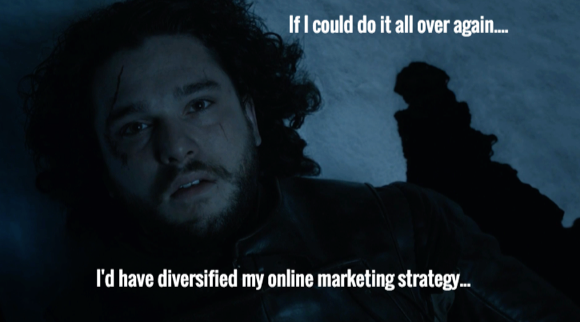
Um, yeah, it kind of did.
The dream of search engines has always been to devise the one true king a genuine algorithm that ranked sites and pages in the most honest, transparent, and relevant way. Each and every day the Lannisters Larry and Sergey’s team are paying their debts to internet culture by refining their process. No longer the world of 3% keyword density over 20,000 words of meaningless content, no longer the world of metadata stuffers and link spammers. As a lead SEO likes to remind me, the old basics may get you a seat at the table, but it doesn’t mean you get to eat. And that’s a good thing.
It may seem like the way forward for smaller retailers and scrappy start-ups is darker than a Winterfell midnight. It may seem like chaos is a pit…but it’s actually a ladder. The old SEO might be dead, but that doesn’t mean the story is over. SEO just needs to, um, transition. And for that to happen, you’re going to need a little magic guidance.
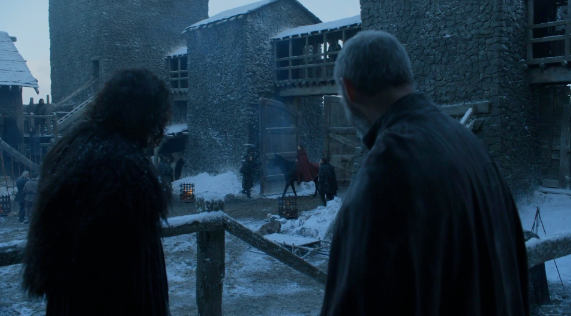
Ok, you know what? Let’s drop the snarky strikethroughs. It’s time to do some serious GoT metaphorin’. You’re gonna have to graduate from a red Wildling…

…to a Red Priestess. Only then can SEO come back from the dead.

Chaos is a Ladder
In the new world of SEO, the world is not flat. Every online retailer fiefdom is going to have to fight and claw for rank on practically equal terms with big box heavy hitters. And those guys have the resources, the staff, and the brand recognition most online shops can only dream about. They’re the White Walkers. And to take them on, much less take them down, you’re going to need to know what you’re doing. There’s no easy road to the Iron Throne; you can’t Littlefinger your way there by manipulating search engines, you can’t Renly Baratheon your way there by relying solely on social connections (social media), and you definitely can’t Robb Stark your way there by shunning good advice and going it alone.
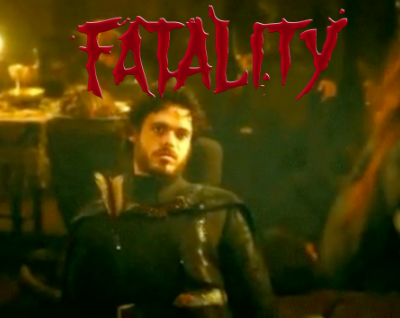
Any expert (the Red Priestess in this increasingly insane metaphor) worth their salt is going to tell you the truth: Bringing SEO back from the dead is going to be hard. Because you can no longer game the throne, you’re going to actually have to win it, fair and square.
Today there are four key pillars to modern SEO strategy.
Pillar the First: Expertise
The first pillar requires that you get yourself a Red Priestess, stat. That’s Expertise, and you can learn it on your own, Samwell Tarly-style, through years of dedicated study with the Maesters, or you can buy it, Stannis Baratheon-style (R.I.P. Stanny). Watch out for suspicious black smoke.
Pillar the Second: Unity
The second pillar is Unity. SEO, like the Seven Kingdoms, is diverse. But if you want to come back from the dead and beat the White Walkers, you have to unite each kingdom in a common, communicative, and coordinated purpose.
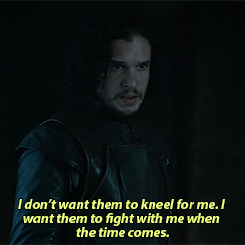
As I see it, these kingdoms include links (and referral traffic), social signals, content, communities, site architecture, and your brand voice.
Now, listen. Lean in close. Because right now I’m going to tell you the secret to modern SEO:
It has to be better than everyone else’s.
It’s that simple. You simply cannot cheat your way to quality anymore. Like Varys, the search engines have spies and little birds throughout the World Wide Westeros; the only way you’re going to resurrect our fallen hero is by building frictionless architecture, then actually sitting down and writing/posting/building/linking something worth reading, worth sharing, and worth remembering. In other words, come correct or don’t come at all.
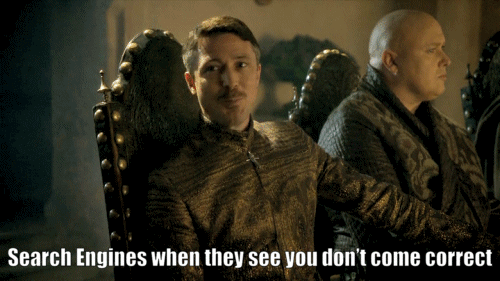
Pillar the Third: Trust
The third pillar is Trust. I know what you’re thinking: GTFO. But first of all, keep it clean. Second of all, no, this is about GoT.

Trust can’t be measured, you say. Trust can’t be quantified. Trust can’t be earned until you’ve killed one of your friends to prove you’re no crow, broken your vows of celibacy, and refuse official legitimization as the Lord of Winterfell. You’d be right if we were talking about the old Jon SEO. But we’re talking about the new and improved version.
Industry leaders like Moz are finding ways to define and measure trust in the same ways that search engines do. Just like in the storm of swords and feast for crows (book readers shout OUT) that is Westeros, you’re only taken seriously when serious people/sites vouch for you. A link from momandpopsfakefurnitureblog.com isn’t going to give you anywhere near the juice of a .gov or .edu domain, nor of a major online publisher, aggregator, media outlet, competitor, or industry leader. I mean, when a sellsword like Bronn vouches for you, that’s cool. But it’s just not the same as getting dap from the Oathkeeper herself, Brienne of Tarth.
Okay, I’m pretty sure I mentioned a fourth pillar. But right now it’s escaping me…Is there something really essential and badass in this story that I haven’t mentioned yet?

Pillar the 4th, First of Her Name and Queen of the Andals: DRAGONS!
I can’t believe we almost got through an entire article about GoT without mentioning the one, the only, the Mother Pillar of Dragons. You don’t think she’s going to have something to say when old Jonny Boy makes his triumphant return to the world of the living? You don’t think those dragons are gonna have something to say about that giant wall of ice in the north and the giant wall of frozen undead a-holes beyond it? You don’t think (SPOILER ALERT FOR THOSE OF YOU WHO THINK I’M CLAIRVOYANT) that Jon and Daenerys are secretly half brother and sister? What!?
Are the big box White Walkers knocking on the door? You need a dragon.
Are you getting attention but no conversion? You need a dragon.
Do you want social signals to translate to sales? You need a dragon.

In the world of online retail, dragons are unique value propositions, qualities, or strategies that separate you from the competition. They’re the oil in the machine, the grease on the wheels. They’re your company’s special sauce. For Zappos, it’s their legendary customer service. For Dollar Shave Club it’s their unique and super-viral ads. For Amazon it’s two-day shipping with Prime. Your dragon is the first valuable thing that someone says or remembers about your company; the thing that sticks in their minds and separates you from the chaff.
The first three pillars of modern SEO strategy will get you all the way to the gates of King’s Landing. But if you want a shot at the Iron Throne, you’ll have to set yourself apart. You’ll have to have that one thing that nobody else has; the thing that makes you special. The thing that makes you fit to rule. And that’s the one thing that no e-commerce pro can give you. You’re going to have to give birth to the dragon on your own in a complicated blood magic ritual involving a funeral pyre, some petrified eggs, a bottle of peroxide blonde hair dye, and, yeah, some nudity (read the contract!).
So this Sunday, as friends and family huddle around the fire screen to see the future of our hero, ask yourself this question:
What’s your dragon?
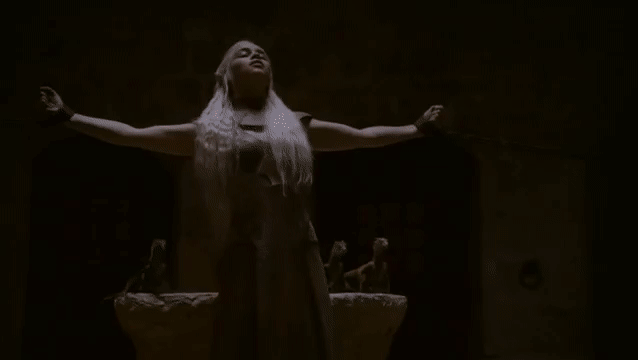
About the Author: Andrew Scarbrough, Scion of Braavos and First of his Name, is the Co-Founder & COO of Delegator and PriceWaiter. PriceWaiter is his e-commerce technology dragon. It helps engage and convert comparison shoppers while mitigating the effects of Minimum Advertised Pricing. He is riding his dragon right now.
Source
https://blog.kissmetrics.com
No comments:
Post a Comment